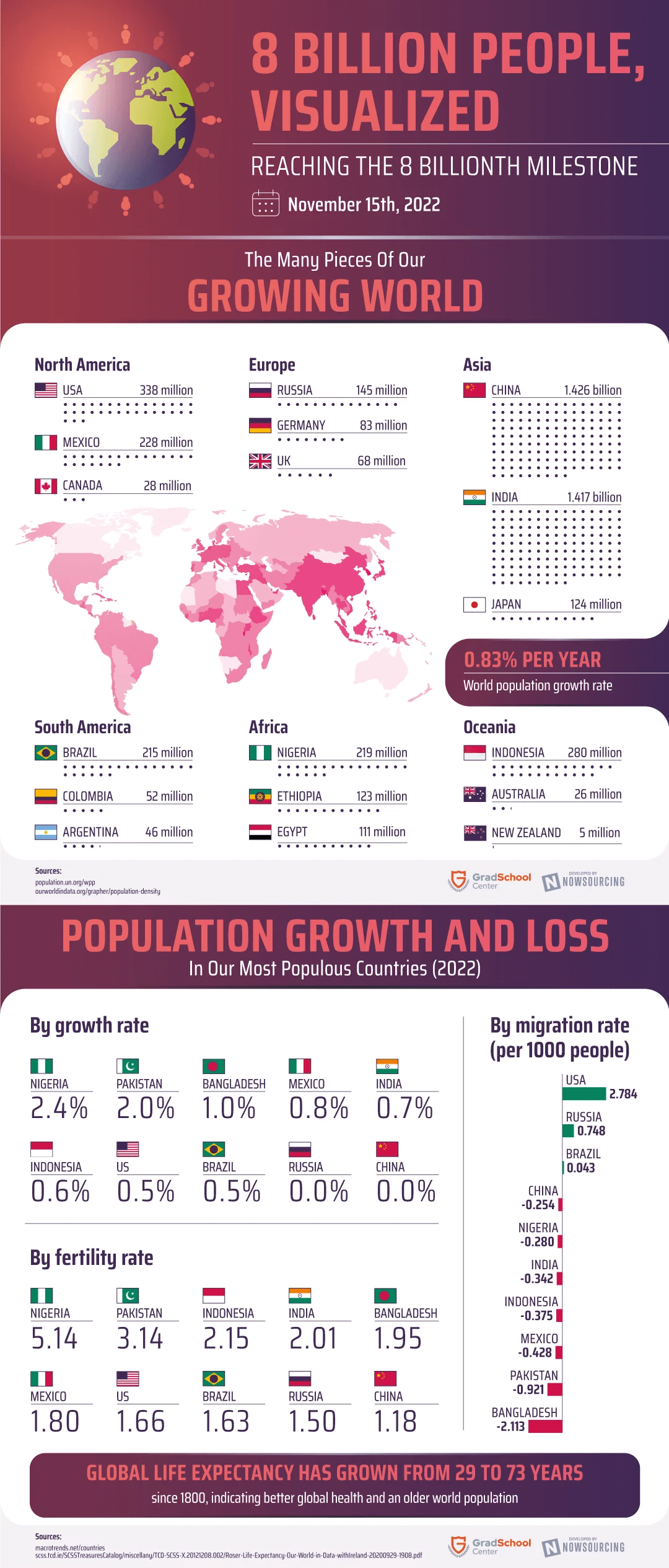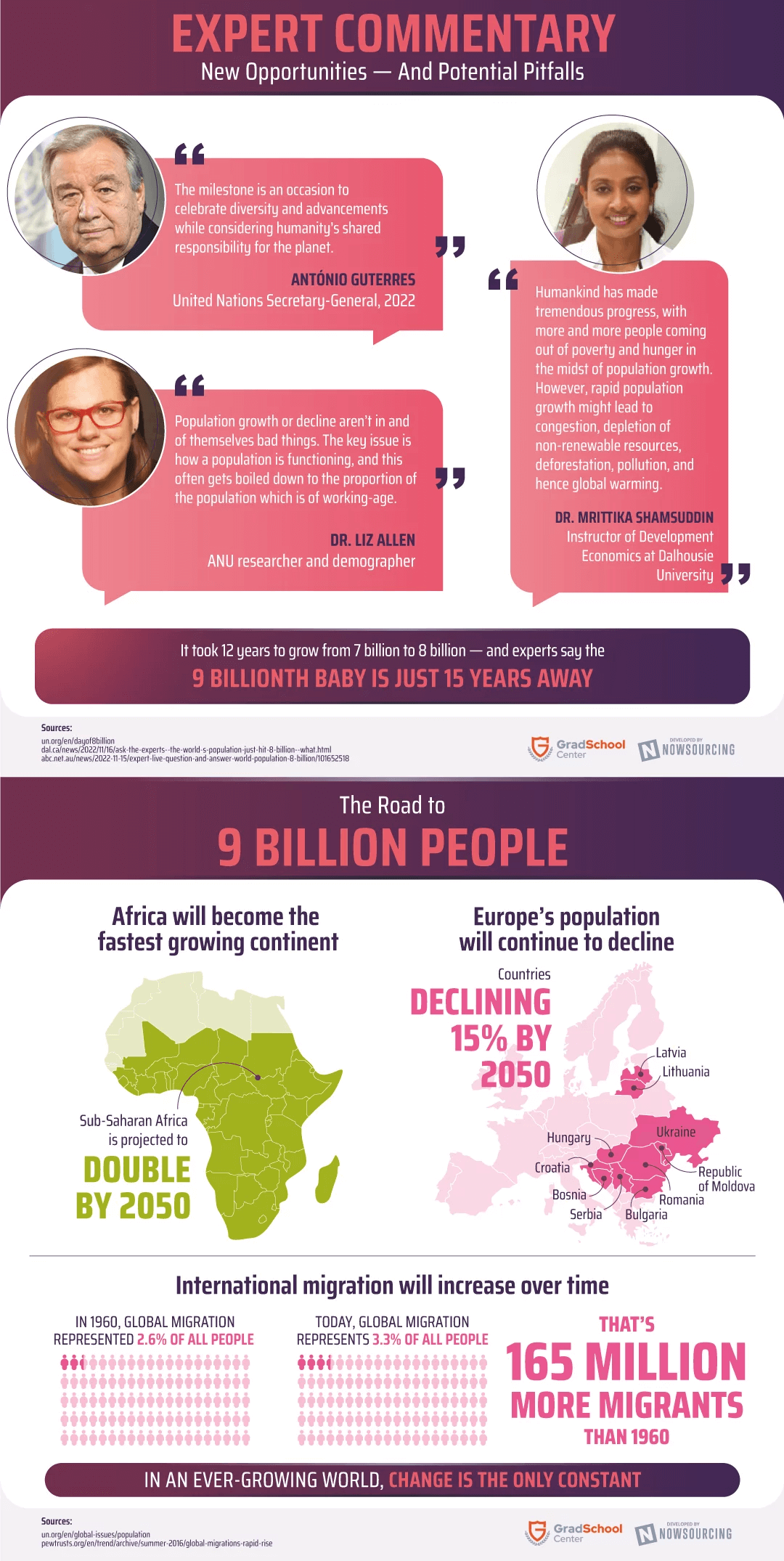There are countless factors that lead to a nation’s success, even more that measure it. When looking at nations today there’s the economic state, cultural, environmental, and social measures. Most simply though, there’s population. It’s one of the longest standing studied measures for any nation.
Looking at the population today, the top countries shouldn’t come as a surprise. China, India, the U.S, Russia, these are all major world powers. Some are less relevant than they used to be, and some are making their way up. Looking at the smallest countries in the world it’s no surprise they lack influence. People equals power as long as they’re on the government’s side.
Although surely the discussion can’t stop here. While population is undoubtedly important, it’s a relatively simple measure. Well before leaving the population behind, it’s vital to mention the world recently amassed over 8 billion people. A number so far beyond comprehension when most can barely conceive their own city.
This was a number reached through the growth of several nations, India leading the pack. Looking towards 9 billion, a number that seems so far but isn’t, that pack leader will change. Today Nigeria and Pakistan are the fastest growing nations. They have high fertility rates and people aren’t dying so fast as to offset it.
Other countries are not only not growing, but may be actively shrinking. Europe, for example, is a region shrinking as a whole. By 2050 it’s projected to decline by as much as 15%. A number with a stark contrast to Africa’s projected doubling in size of the sub-saharan region.
Today Africa may not be a major social influence in the west, but India shows us how that can change. The world is not only larger but more connected than ever. This has led to an increase in large multinational corporations and ever growing demands. People are living longer, requiring more, and working less. Labor shortages are predicted to be a serious problem by 2050.
What this all means though is vastly different from nation to nation. For example, health, a general great marker of a nation’s success. Europe, while holding notably low growth rates, has great population health. People in Europe are living to be 80 on average, older than ever. Meanwhile looking back at sub-saharan Africa, a region predicted to grow more than any other. Health concerns are not just a real risk but an active and dangerous one.
These two regions highlight the differences that can be found across the globe. 8 billion people on the planet doesn’t mean 8 billion happy people. It just means that things are growing, and truly have no inclination of stopping. As we connect more and more everyday one can only hope that things will get better. Poverty, scarcity, climate change, issues that are ever present but can be reduced in harm.
Now more than ever the individual has lost influence. Although that also means the individual is more important than they’ve ever been. Not falling to the influence of culture, maintaining autonomy, these are important points. The future is one of connection and community. The individual can never be lost though, for fear all individuals stop caring.



Infographic Source: https://www.gradschoolcenter.com/8-billion-people-visualized/
